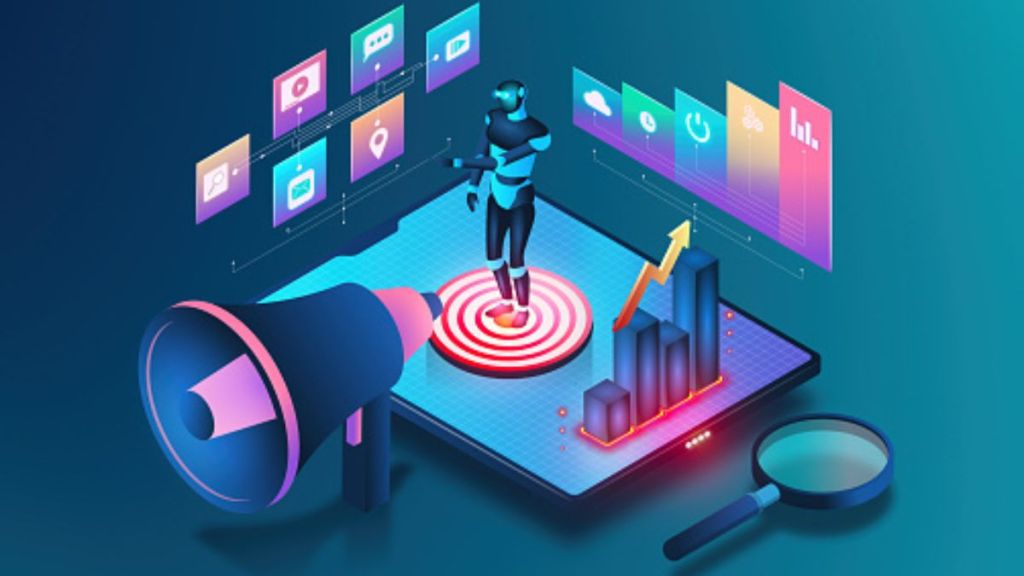Udit Agarwal
In the dynamic and ever-evolving landscape of marketing, businesses constantly strive to connect with their customers in more meaningful and impactful ways. As traditional approaches prove insufficient in this digitally-driven era, the advent of generative artificial intelligence (AI) has emerged as a game-changer in the marketing technology (Martech) space.
Generative AI is a subset of AI and holds immense potential for marketers seeking to break through the noise and establish genuine connections with customers. Leveraging advanced algorithms and machine learning capabilities, this technology empowers businesses to generate bespoke content that resonates with individual consumers. Generative AI also allows marketers to gain comprehensive insights into consumer preferences, behaviors, and patterns to deliver personalized experiences at scale and gain a strategic advantage in an era where customers crave authenticity and individual attention. This without a doubt marks the beginning of a new phase in the Martech space, helping businesses reach their customers more effectively and efficiently.
87% of marketers believe Generative AI improves efficiency for CX
Generative AI has significantly improved efficiency and intelligence in marketing operations, empowering marketing and sales teams to achieve better results for customer engagement.
One of the key benefits of generative AI is automation, which streamlines repetitive tasks and allows marketers to focus on more strategic initiatives. By automating data analysis, content creation, and campaign management, marketing teams can save time, reduce human error, and increase productivity. Another crucial aspect where generative AI shines is sentiment analysis. AI-powered tools can analyze customer feedback, social media posts, and online reviews to gauge sentiment and emotional tone. This enables marketers to understand customer preferences, understand emerging trends, and tailor their messaging accordingly.
Furthermore, generative AI excels in behavior prediction by analysing vast amounts of customer data. This allows marketers to identify patterns, trends, and correlations, enabling them to predict customer behavior, such as purchase intent and the likelihood of churn. With this valuable information, marketing teams can engage with customers proactively, deliver personalised recommendations, and optimise their campaigns for better results.
A recent survey conducted on the strategic adaptation of generative AI tools by marketing leaders by Exotel, a customer conversation platform, states that 84% of marketers feel very familiar with harnessing the capabilities of AI in their processes. Moreover, 87% of marketers see AI’s benefits for increasing efficiency, 83% for improving customer insights, 84% for providing a better customer experience, and 78% even anticipate AI increasing revenue.
From large enterprises to small businesses, marketers are embracing AI technologies to gain a competitive edge and drive revenue growth. Generative AI is being integrated into CRM systems, marketing automation platforms, and analytics tools, enabling marketers to deliver more personalized and engaging experiences to customers.
AI-Powered Marketing: Conquering challenges, embracing the future
The adoption of generative AI in marketing operations presents both challenges and promising opportunities for businesses. While the potential benefits are significant, marketers must navigate through obstacles to fully harness the power of AI. One of the primary challenges, as revealed by Exotel’s survey, is the initial investment required for AI implementation, which was cited by 41% of respondents. However, the industry is changing and adopting AI for daily operations. For example, the survey data reveals that a staggering 37% of respondents confirmed a budget of over Rs. 50 lakhs dedicated to AI in 2023, while an impressive 10% are planning to spend more than Rs. 1 crore on the technology this year.
Additionally, marketing businesses are actively working to overcome setbacks related to integrating AI tools with legacy systems and modernising infrastructure for improved efficiency, as mentioned by 32% of survey participants. This positive attitude fosters collaborative efforts to address concerns and maximise the benefits of AI in marketing operations. Another obstacle to embracing AI advancements is resistance to change. Some employees may be apprehensive about adopting new technologies, fearing job displacement or uncertainty about how AI will impact their roles. Overcoming this resistance requires strong leadership and a collaborative approach. By fostering a positive attitude towards AI advancements and facilitating open communication, leaders can address concerns, provide proper training, and demonstrate the benefits of AI to their teams.
The path ahead for AI in marketing operations is filled with promise. As businesses overcome challenges, they can fully leverage the potential of AI to enhance customer engagement, optimize marketing strategies, and drive growth. The advancements in generative AI have already showcased remarkable improvements in efficiency, intelligence, and customer experiences. With ongoing developments and advancements, AI will continue to transform marketing operations and make data-driven decisions.
Conclusion
The revolutionising impact of generative AI on customer engagement in marketing is undeniable. With recent advancements in AI technology, businesses have witnessed significant improvements in efficiency, intelligence, and customer experiences. As AI continues to evolve, its role in shaping customer engagement strategies will undoubtedly grow, leading to a future where personalized and context-aware interactions become the norm.
The author is the VP and global head of marketing at Exotel


